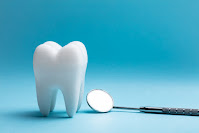
The U.S. Food and Drug Administration (FDA) has issued a Drug Safety Communication about dental problems associated with the use of buprenorphine products that dissolve in the mouth (transmucosal) and is requiring that a new warning about the risk of dental problems be added to the prescribing information and patient medication guides for these products. The dental problems include tooth decay, cavities, dental abscesses/infection, tooth erosion, or tooth loss.
The warnings come after an FDA review of cases reported to the agency or published in the medical literature revealed 305 cases of dental problems, 131 of them classified as serious, among patients who take transmucosal buprenorphine. Most of the dental problems occurred in patients who used the medication to treat opioid use disorder (OUD), although 28 cases occurred in patients who used the medication to treat pain. The most common treatment for these dental problems was tooth extraction or removal, reported in 71 cases. Other cases involved root canals, dental surgery, or other procedures such as crowns and implants.
“It would be useful to learn more about these reports and understand what proportion of total people using these specific formulations may be affected,” said Smita Das, M.D., Ph.D., M.P.H., chair of APA’s Council on Addiction Psychiatry. She noted that 305 is a relatively low number of cases given the number of people who take transmucosal buprenorphine among the approximately 1.7 million people who use buprenorphine as prescribed.
“Of course, for those individuals who are affected by dental problems, the impact is certainly considerable in their daily lives,” Das said. “With any medication, if there is a risk, it is important to consider the likelihood of that risk and how that risk compares to the benefit. In the case of buprenorphine, it is a lifesaving medication for many people and a core part of treatment for opioid use disorder.”
The FDA Drug Safety Communication advises health care professionals to ask patients about their oral health history before prescribing treatment with a transmucosal formulation of buprenorphine and to refer patients to a dentist as soon as possible after starting treatment. Patients should be instructed to gently rinse their teeth and gums with water and swallow after the medication has completely dissolved, then wait at least an hour to brush their teeth. The FDA also cautions patients not to stop taking their medications without consulting a health care professional.
Miriam Delphin-Rittmon, Ph.D., assistant secretary for mental health and substance use and the head of the Substance Abuse and Mental Health Services Administration (SAMHSA), issued the following statement in response to the FDA guidance: “SAMHSA urges patients and providers to weigh the lifesaving benefits of buprenorphine with this identified risk in making decisions about starting and ongoing use of buprenorphine.” She added that SAMHSA supports the FDA’s recommendations regarding the steps patients can take to care for their teeth and minimize their risk.
(Image: iStock/AndreyPopov)
Public Health Emergency Again Extended
Today Health and Human Services Secretary Xavier Becerra extended the Public Health Emergency determination for an additional 90 days, effective January 16. This is the eighth such extension since the original declaration was issued at the start of the COVID-19 pandemic and is not expected to be the last.

